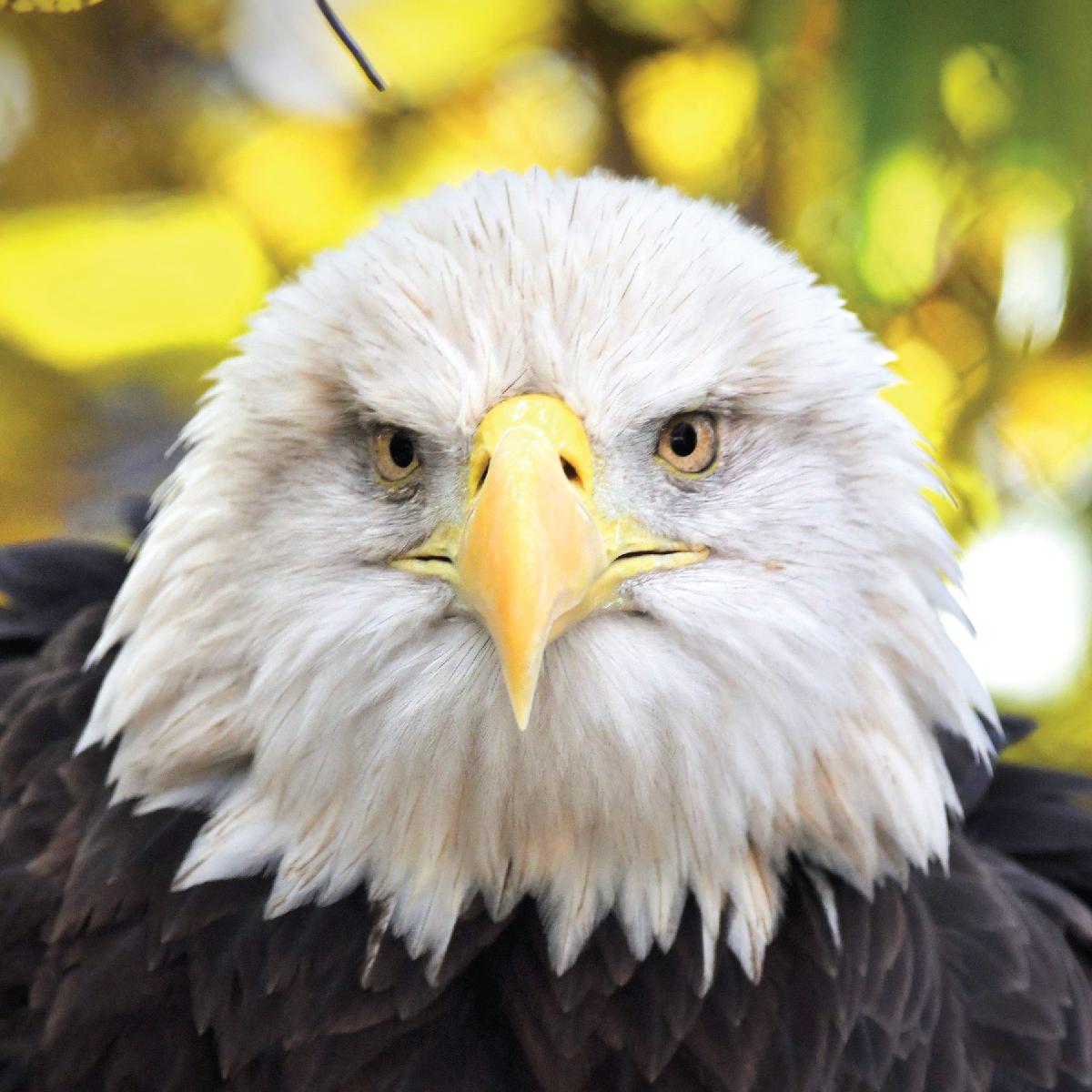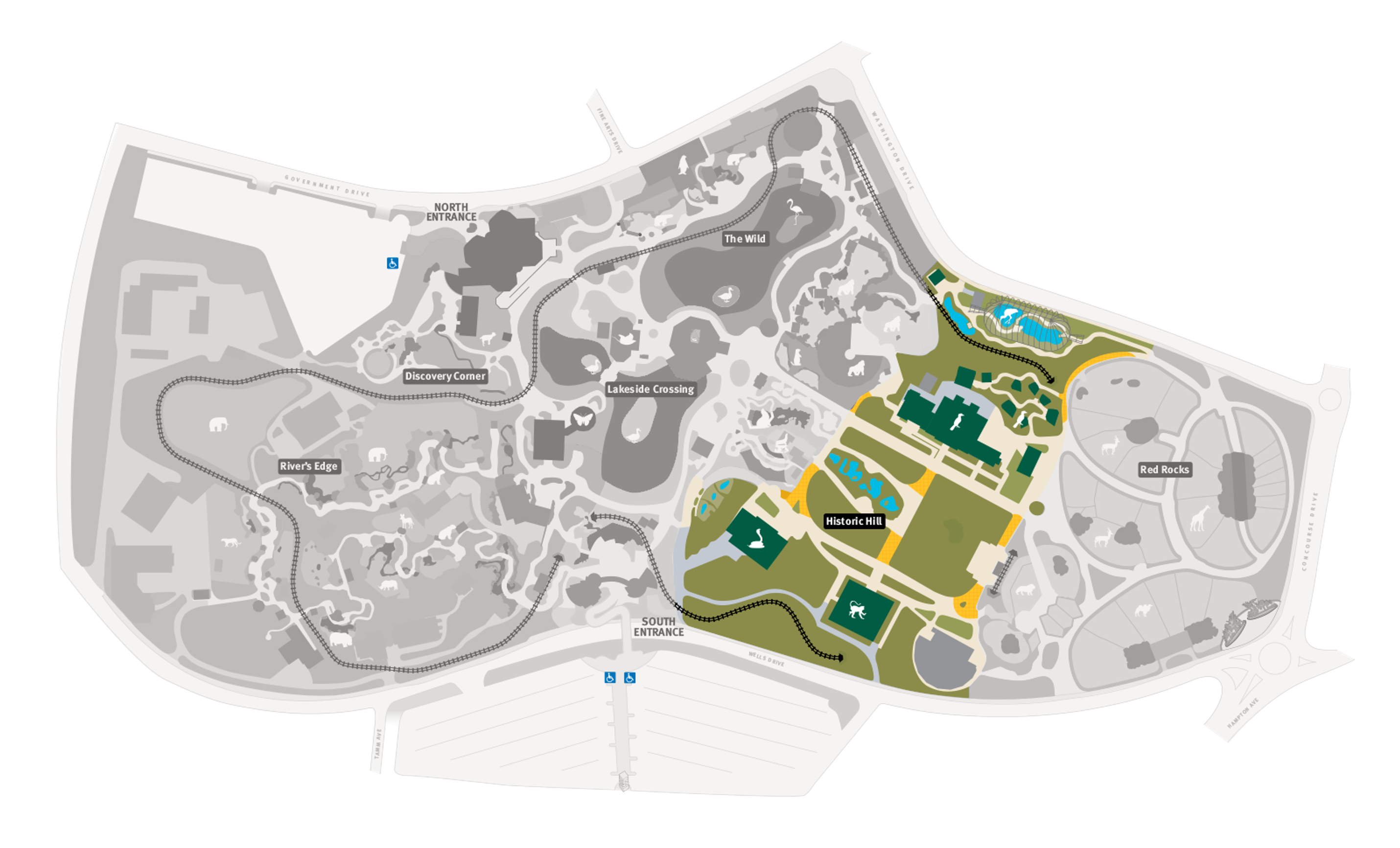
Bald Eagle
Haliaeetus leucocephalus
Did you know?
- The bald eagle was adopted as our national emblem in 1782.
- It is not really bald; when seen from a distance, its white feathers tend to make the bird appear bald.
- Adult males and females look the same.
- Their favorite food is fish (often salmon), which can comprise up to 90% of their diet.
- Some eagles have been known to spot fish up to 1 mile away. No wonder someone with good eyesight is known as having an "eagle eye!"
Nest of Unusual Size
Bald eagles often mate for life. Courting behavior often involves spectacular aerial displays, sometimes locking their talons together. After mating, the birds nest in the tops of tall trees. The pair enlarge the nest every year, so much so that it can reach a massive size. The largest bald eagle nest recorded was 20 feet deep, 10 feet wide and two tons!
Conservation Success
The eagle is one of America's best-known conservation successes. Between the use of herbicide, DDT, and habitat loss, by 1963, the population of eagles declined to only 417 known breeding pairs in the lower 48 states. In 1967, the bald eagle was officially declared an endangered species. With the ban of DDT, restoration projects, and legal protection, the population made a significant comeback by mid-1990s. In 2021, there were 71,467 nest pairs in the wild!
Threat Level
- Unknown
- Common
- Near Threatened
- Threatened
- Endangered
- Critically Endangered
- Extinct in the Wild
Common
The Bald Eagle is widespread and abundant.
Range
North America
Habitat
Woodlands, near freshwater

We care about Bald Eagles
The Saint Louis Zoo supports bald eagles at the Bird House. Learn more about how we are helping wildlife around the world.
Find this animal in Historic Hill

SAINT LOUIS ZOO ZONE
Historic Hill
Historic Hill is a lovely stroll through one of the oldest parts of the Saint Louis Zoo. From the 1904 World’s Fair Flight Cage to the Spanish architectural flavor of the 1920s in the Bird House, Primate House and Herpetarium to the finishing touches of our thoroughly modern exhibits, this area of the Zoo has a unique ambiance and a nostalgic history that make it a great destination.

